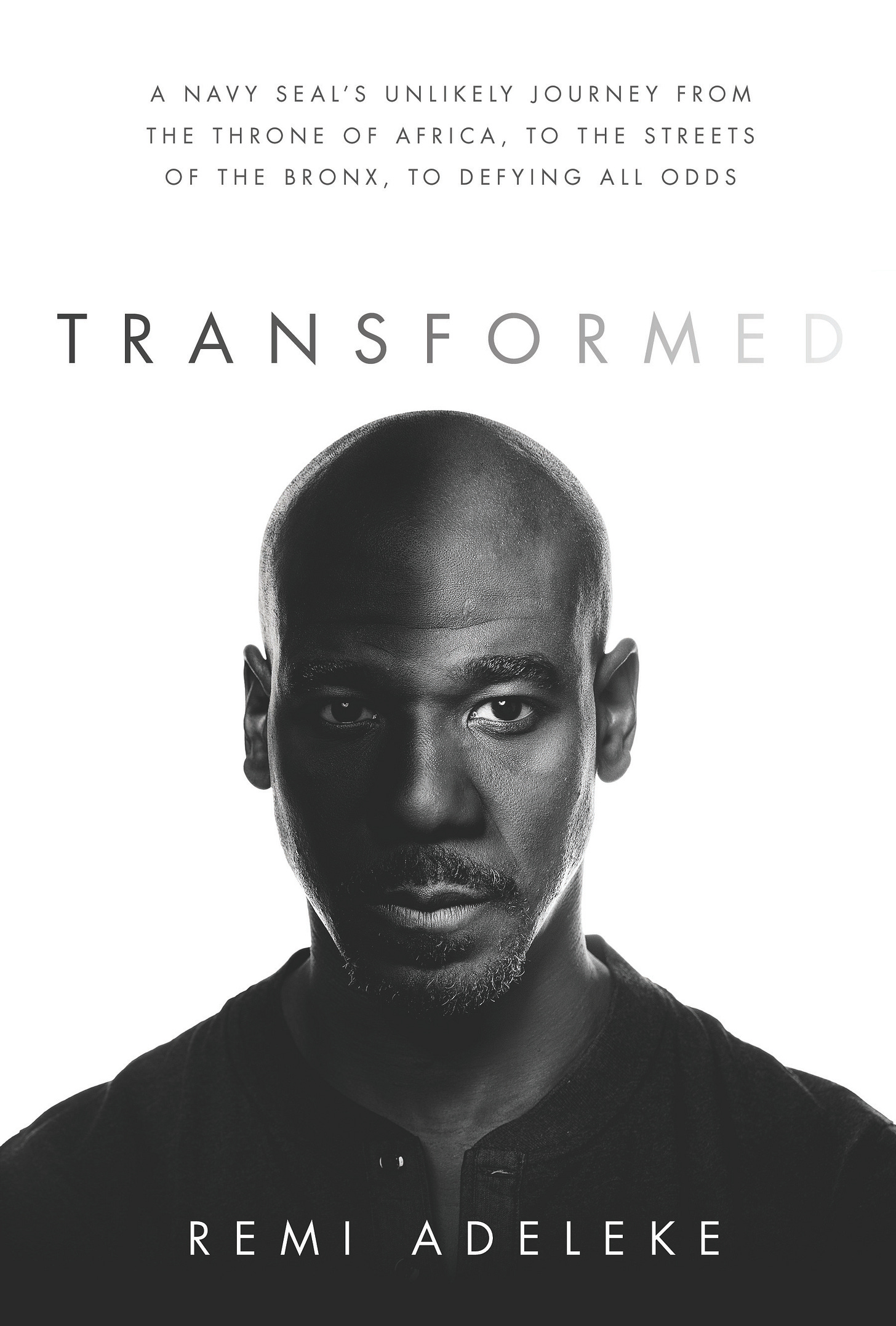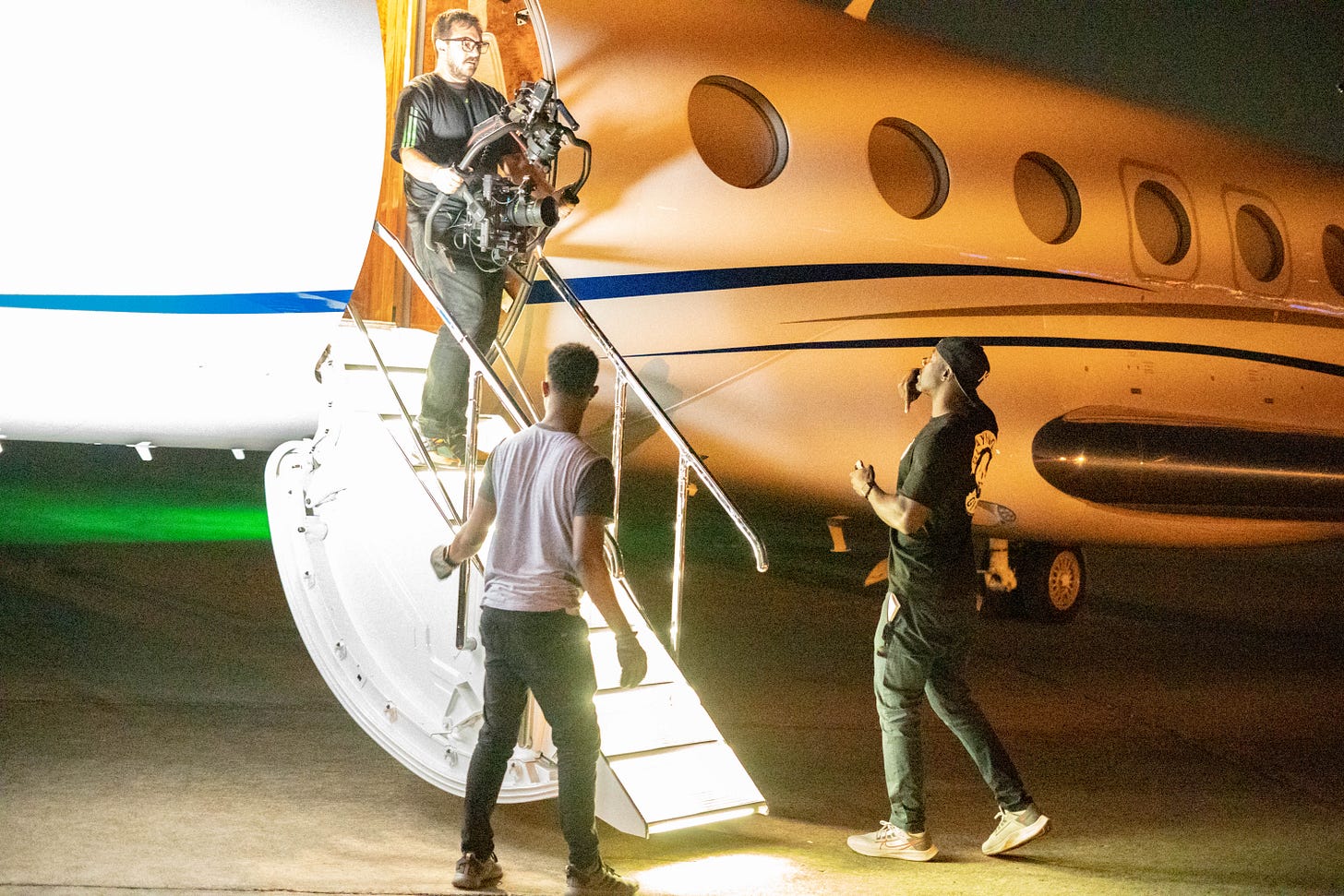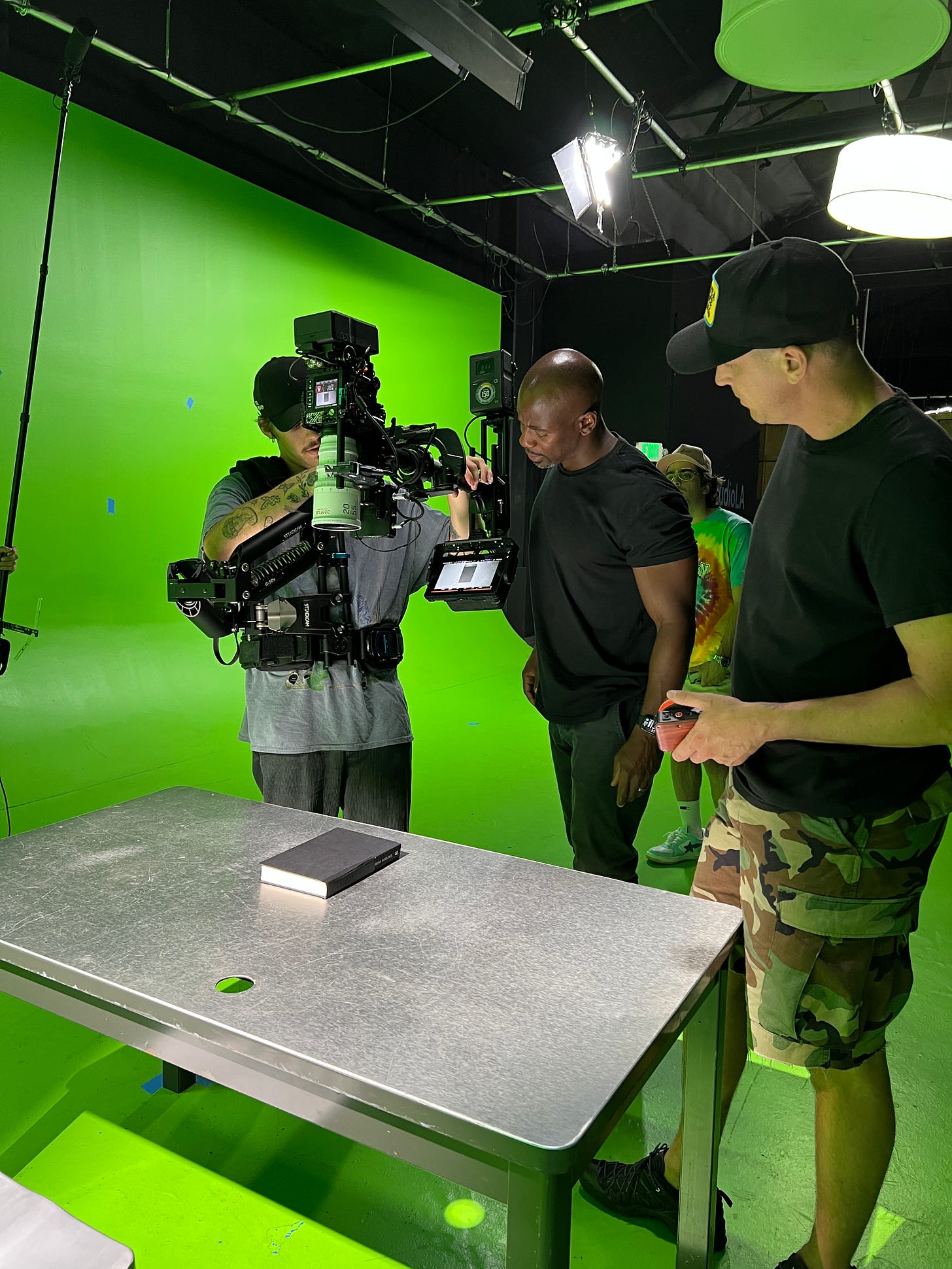TRANSITION Interview #12: Remi Adeleke.
Hard Work, Knowing Who to Trust, and Rejection with former SEAL, Actor, Writer, Director, and all Around Storyteller Remi Adeleke.
The following is a conversation with actor, author, and former Navy SEAL, Remi Adeleke.
Born in Nigeria to a wealthy businessman, Remi spent his initial years surrounded by wealth and privilege. However, when his father died unexpectedly, the family’s assets were seized and he and his mother relocated to New York City - The Bronx.
After years of struggle, doing what he could to avoid poverty, Remi became involved with drug dealers and other illicit ways to make money. After a few close calls with law enforcement, Remi was determined to “transform” himself, and enlisted in the Navy, serving first as an Fleet Marine Corpsman and later as a Navy SEAL.
He served sixteen years and numerous combat deployments before leaving the military in 2016, which is where our conversation begins.
Remi’s written numerous screenplays as well as a memoir and a novel series. His memoir is titled Transformed: A Navy SEAL’s Unlikely Journey from the Throne of Africa, to the Streets of the Bronx, to Defying All Odds, and the novel titled, Chameleon, Black Box.
He’s appeared in numerous TV series: The Terminal List, and SEAL Team, as well as the feature film, Transformers: The Last Knight.
In addition to acting, directing, and writing, Remi has a deep commitment to working with at-risk youth and inspiring others to embrace hard work and the power of self-improvement.
Thanks for doing this. This interview series is a mix of vets and writers, really. Which is why I reached out. There's a good bit online already about your life before the SEAL Teams; where does writing fit into that story? At what age did that begin?
I was young. When I was out of school in the summertime, my mom made my brother and I read the New York Times and write up these reports.
She had a writing business called "First Impression Writing Services," back when computers were just becoming popular.
She would type resumes, turn papers, and people’s business plans. She wrote thesis, a bunch of different stuff.
It was her small business, so writing was important to her, and it was important that her kids, me and my brother, understood writing and storytelling.
No kidding? Good for her. Did you write at all while you were on active duty?
I did. In training, I can remember my first exposure to human intelligence. We were doing this dive – we got dropped off over across from the airport, around Shelter Island.
We had to dive through this canal and come up under a bridge and take off our dive gear. We had dry bags with us, and we changed into street clothes, then we went and met with all these sources. I thought it was so cool.
When I got to Team Three, you have a dream sheet with all the different schools you want to go to. I told my Chief, "I want to do the Human Intel stuff," but, there was a rule at that time, you had to have at least one deployment.
So, long story short, right before that deployment, they needed more intel guys and asked for a volunteer to go to the course.
One of my older guys failed the screener on purpose; that's how bad he didn't want to go.
I raised my hand, and off I went.
But to answer your question, there's a ton of writing in that Human Intelligence world, maybe you know that already, but I got a lot of practice.
I did know that. I remember guys complaining about how intense the writing was. So I assume, when you decided to write your memoir, you knew you could do the work?
Yeah. When I got out of the teams, I was doing some speaking engagements. There, I would write my enire speech out and memorize it. I enjoyed that as well.
So yeah, when I got my first book deal, I was already writing a lot and looked forward to that part of it.
Good for you. How was that whole process? Getting your first book deal.
You know Kathy Lee Gifford? The former host of the Today's Show?
I went on a trip to Israel with her not long after I got out. Anyway, her son and I ended up getting pretty close, and she knew my story. Growing up in Africa, starting out rich, my father dying, growing up poor in The Bronx, selling drugs - the whole thing.
So anyway, after that experience, she brought me on the Today Show, and backstage, she said, "Look, you really need to write a book about your life."
I was against it at first. You know, the whole idea of getting out of the teams and writing a book about yourself.
She said, "I get it, but it doesn't have to be about the teams, but you need to tell your story. You can inspire other people."
So, anyway, in terms of the deal, she helped me out. Introduced me to a publisher and all that.
Amazing. So, you were able to bypass the whole agent, pitch, and contract side of book dealings?
Yes and no. I learned a big lesson on that first deal.
Coming out of the teams, you know, I was quick to trust people. Like we all are. We all go through the same shit, it’s easy to trust another team guy without vetting them like maybe you should.
I had this manager who turned out to be a dirtbag. When he saw I was about to get this book deal, he tricked me into using his agent.
I really didn't know any better.
Anyway, long story, she ended up getting 15% off the top, and the whole thing was a scam. The deal was already done. Nothing for an agent to do.
So, the work you've done as an actor and a filmmaker, was that a future you saw for yourself when you were in the SEAL Teams? How does a person break into that field?
No. My plan was to get into business consulting. I got a master's degree, and I was thinking I wanted to do independent consulting with different businesses and sports teams. Which I did and still do, somewhat.
In May of 2016, I got this call to help on Transformers the movie.
It was supposed to be a single day job, but it turned into six months.
Doing that I found out I really like telling stories; I really like changing culture through telling stories.
So, I kept going with the consulting deal, but from there I really tried to move more toward TV and film.
Hang on. Your phone rings, and someone asks you to be in the movie Transformers?
(Laughter) Pretty much, that's how it happened. I was in my office, writing papers for school, and my phone rang. This lady tells me she works for Michael Bay, and she's looking for a team guy to help with something. "Can you be in LA tomorrow?"
I said, "Sure."
At the end of that day, she said, "Anyway, can you come to help us in Arizona?"
Then we went to Michigan, and eventually, I stayed on for the entire shoot.
But like I said, man, it wasn't really a calculated thing.
That's awesome. You wrote a novel, too, correct? "Chameleon." Will we see that become a multiple book series?
Yeah. I'd like for it to be a trilogy and cap at that.
Any plans to turn it into a movie or show?
Well, so for the novel, the second book in the series was written as a screenplay.
I had an option on the screenplay with Flint Pictures of Warner Brothers. We did almost eight months of rewrites on that script, making progress and even attached a movie star, and, you know, things were flowing, and then there was a situation where the actor they'd picked had done a $180 million film, and it bombed.
This is all movie business stuff, but that person's value dropped, and the studio decided they no longer wanted to finance the movie, and it kind of fell out of development,
But the result was a book deal from it.
When I signed a book deal, my agent and my publisher wanted me to take the screenplay and make that book one.
However, instead, I wrote the origin story for the main character, and that's "Chameleon," book one, and then the second half of book two will really be that original screenplay.
It sounds like you have your hands on so many projects, all centered around storytelling. By design, I’m sure?
I try, man. I'm a storyteller at heart and a filmmaker – it's what I put all my time and energy into.
Well, what's next for you?
Let's see. I made a short film about organ harvesting that's on YouTube now called The Unexpected. I wrote and directed it. Hopefully, it goes to production next year.
I'm on the hook to direct a small indie drama, a coming-of-age film, and then, I'm writing this book.
There was a deal on the table for my memoir made into a feature film, but they walked away. Not willing to give me the opportunity to direct it.
I got hit up by a Medal of Honor recipient; a SEAL was killed rather. His estate wants me to tell his story in a film.
That's amazing. It seems like wherever you set your sights, you’ve been able to achieve. What are some challenges you've faced leaving the military?
Oh, for sure, brother.
Like I told you, the biggest one was figuring out when to trust people. Being in the TV and movie business, people out there will lie, cheat, and steal from you.
Another one is dealing with rejection. This industry has so much rejection. Luckily, we get some of that in the SEAL Teams – in BUD/s or whatever, but you know, I've gotten a thousand "no's" doing this work.
We went through the writer's strike last year, which was tough financially. I had no idea when that would end.
I appreciate you doing this. I know you're a busy guy. Any advice you'd have for veterans who might be interested in moving toward your line of work?
I would just say, hang tight to those lessons you learned in the military, in the teams, where you have to be able to flex. You're gonna get knocked down and face rejection, but it's how you respond to it.
Going after that next target like it never happened. That's most of how you become successful.







